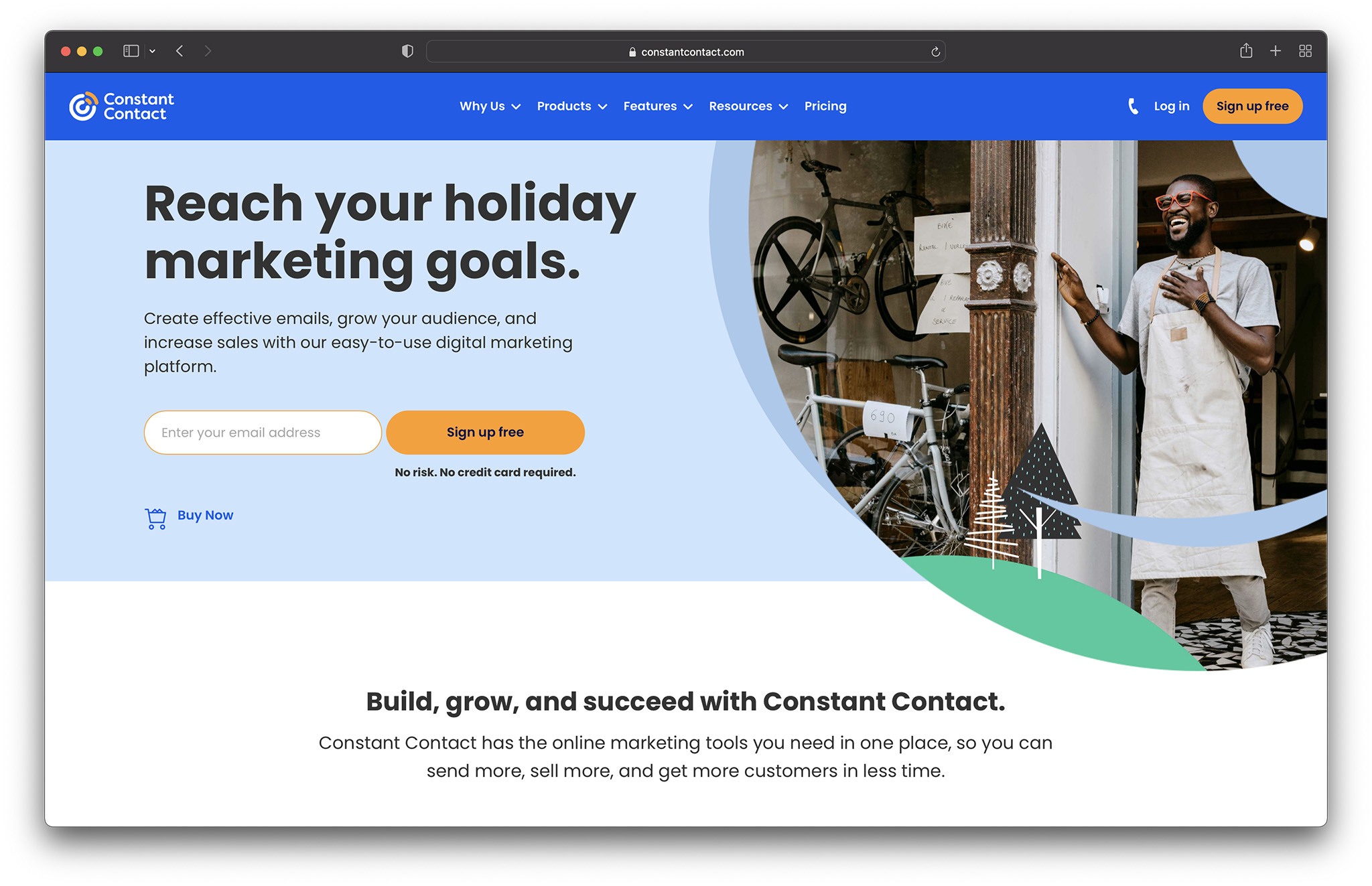Constant Contact Overview

What is Constant Contact?

Pros
-
“The functionality is great and helps eliminate duplicating work. We love the ability to drop in a you tube video, conduct surveys and gather RSVPs.”
-
“I like the ability to take polls and ask questions directly to our customers. It’s not easy to make individual contact when you’re a big small business so having a little interaction helps.”
-
“Constant Contact is the perfect software for helping you to stay in contact with those important people that can have a positive impact on our organization.”
-
“The greatest benefit to us has been our ability to grow our monthly donor base since keeping in touch with them is easy to do.”
Cons
-
“I called the following Monday to cancel my service and they refused to refund my subscription cost even though no service had been provided.”
-
“Email editor shortcomings: no way to create reusable items to be used across emails; hard to get to html when editor features are insufficient or inaccurate.”
-
“Lack of responsiveness by vendor to problems. Feedback and problem reports get an autogenerated email.”
-
“It’s very difficult to cancel the account, you can not delete your data online, also they will argue with you to cancel. No refunds are given if you are unhappy with the products.”
Constant Contact Pricing

Constant Contact offers a wider range of plans since we last reviewed it. For one thing, there’s a Website Builder Only Plan for $10 a month. This is for businesses just looking to build a website and landing page for which Constant Contact throws in free hosting as part of the price. You’ll also have access to list-building tools, an e-commerce store, and the social media marketing features available with the other plans.
For email marketing, the starting tier is the Email plan, which starts at $20 per month for up to three users with unlimited monthly email sends, and basic marketing automation (list building tools, automated email resend to non-openers, and subject line A/B testing). Those features will tick all the boxes that most small to midsized businesses (SMBs) will need, though with an emphasis on smaller organizations.
